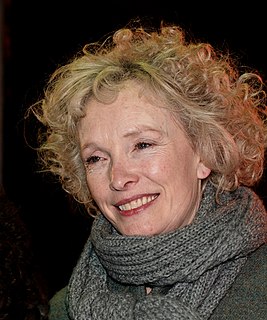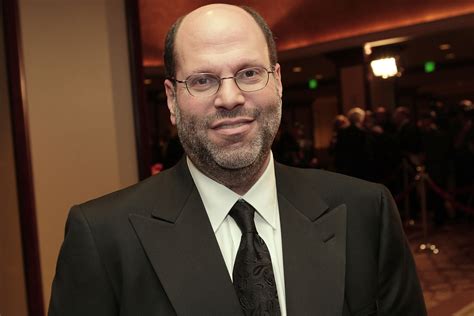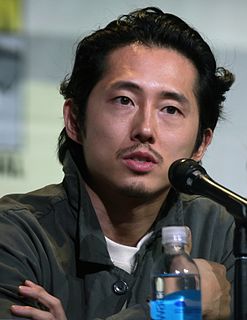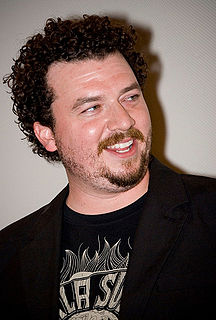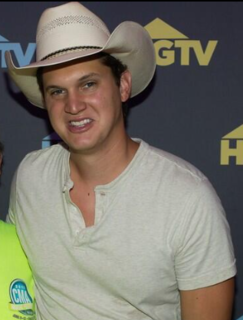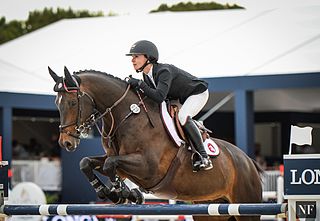A Quote by Lindsay Duncan
My background is really being a writer's actor - that seems to be the way I work best, bringing out the best of writing. There's a whole range of acting skills, and some people can be astonishing with very poor material. That's not me; my skill is essentially unlocking the writing.
Related Quotes
I don't think you could teach someone to be a genius, but you can certainly teach them to not make rookie mistakes and to look at writing the way a writer looks at writing, and not just the way a reader looks at writing. There are a lot of techniques and skills that can be taught that will be helpful to anybody, no matter how gifted they are, and I think writing programs can be very good for people.
Confidence. That's huge as an actor. Confidence can get you a long way. Maybe it's a cultural thing, being Korean, but my first reflex has always been to exude humility - but it doesn't help you in acting. For acting, humility isn't the best thing. It'll weaken your work. So it's a head game for me. "Can I really be confident in knowing my skill set is down? Can I perform like I own this role?"
I went to film school so I have a writing and directing background, and I think a lot of the material I'm interested in writing and getting out there is stories about anti-heroes and people you should just not ordinarily root for - trying to figure out a way of appealing to people they wouldn't normally appeal to.
Writing is the great skill, the creative skill. The acting is more an interpretative skill. And the thrill for me is the moment when I think of something. And then the challenge is how to get that funny idea to work in terms of the structure and that kind of thing, which is - and that's what I really love doing.
For me, a lot of Discipline was very personal writing, like writing through and working out being inside this gendered body and also the compulsions of the body, the muting of the mind as driven by the body. My father had died some years ago so he haunts the book too, just floats through it ghost-like. But, the writing of every book is different for me. They are so like living creatures, these books, so I don't know what's carried over into the writing of the next things - except maybe that I'm best when I make my writing practice a routine.
You never know how things work and what exactly is going to grab an audience. Sometimes even the best material and the best collection of people interpreting that material just for some reason doesn't fly with people. There are a lot of TV shows or movies that maybe aren't as good as others that do work when it comes to finding an audience. It's a mystery, that whole thing. If somebody figured it out, this would be quite a great industry.
The very act of writing assumes, to begin with, that someone cares to hear what you have to say. It assumes that people share, that people can be reached, that people can be touched and even in some cases changed. So many of the things in our world lead us to despair. It seems to me that the final symptom of despair is silence, and that storytelling is one of the sustaining arts; it’s one of the affirming arts. A writer may have a certain pessimism in his outlook, but the very act of being a writer seems to me to be an optimistic act.
I had to take a big risk by writing my young adult book series 'The A Circuit' and putting myself out there in that way. I don't consider myself a good writer, so I had to rely on a co-writer. Still, I knew that people would judge me and my writing. I am really proud of the way the series turned out.
